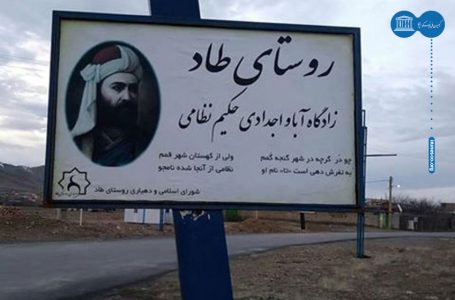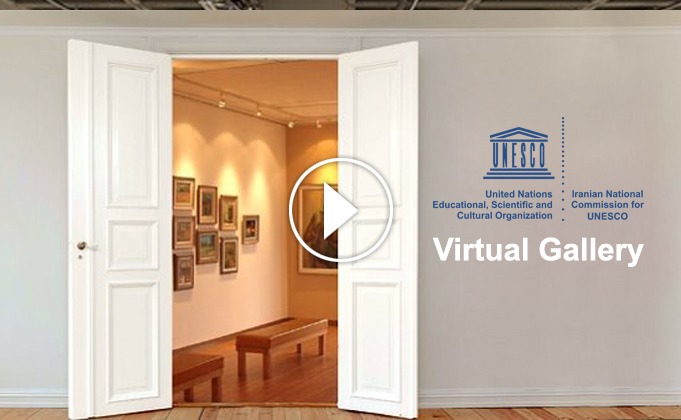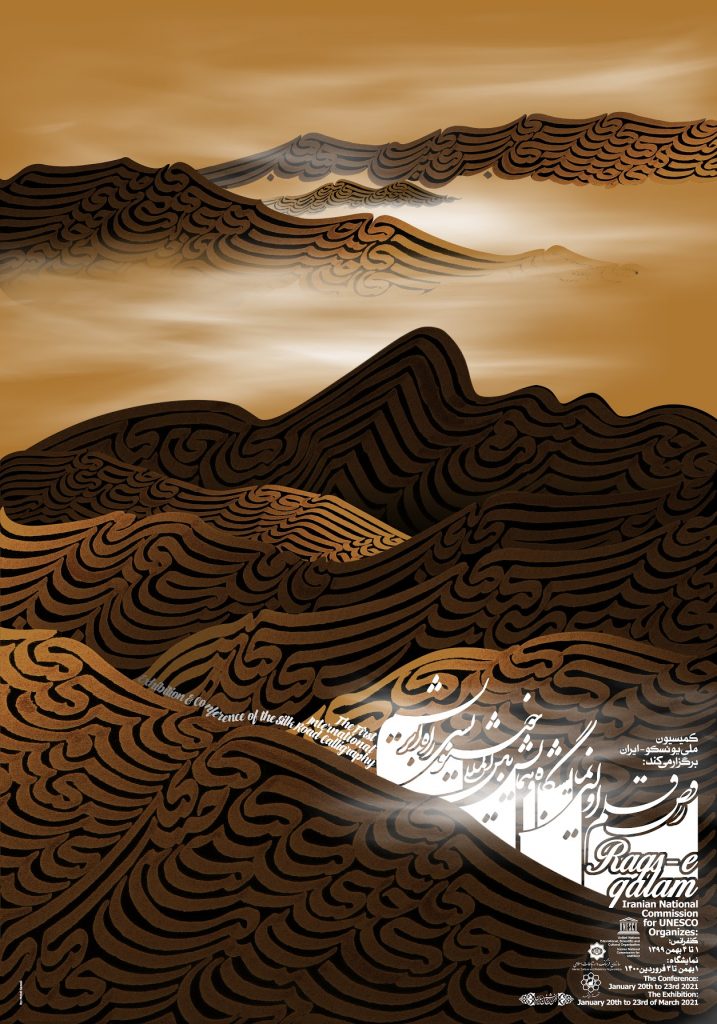The Iranian National Commission for UNESCO hosted a sitting with prominent Nizami Ganjavi scholars and cultural-executive managers of Tafresh city to execute the necessary coordination to protect Tad village, the origin of one of Iran’s beloved poets, Ganjavi.
Hojjatullah Ayoubi, Secretary-General of the Commission, expressed that he hopes a system similar to that of Noorafkan could aid in the both domestic and global recognition of the Tafresh city. Further programs that deal with this region and the poet should be handled with the utmost care. He mentioned how, many years ago, the successful holding of the Shams Tabrizi Art Caravan caused a cultural reformation for Khoy, and that he wants something of a similar scale and importance for a potential caravan in the city of Tefresh so as to invite more people who are interested in Iranian culture. He also suggested holding a calligraphy exhibition for selected poems by Hakim Nizami.
Haj Ali Beigi, the governor of Tafresh, said that whatever is done in service of the greats of the city and the Farahan region is “not enough”. Given that the roots of modern standardized Persian are from Tafresh, and the recent bureaucracy of Iran has been paved by previous Farahani and Tafreshi rulers, it is reasonable for the region to attract recognition for its poetry and calligraphy as well.
Ahmad Mohit Tabatabai, President of the Nowruz Club of the Iranian National Commission for UNESCO, also noted that there is a large possibility of cooperation between the Commission and the city of Tafresh.
Abdolmehdi Mostakin, Director of the Culture Group for the Iranian National Commission for UNESCO, stated that Hakim Nizami is a global figure. “The claim of some countries that the poet has nothing to do with the Persian world is wrong,” he said. Noting that one of the reasons for this arrogance is Iran’s own negligence when it comes to matters concerning its cultural heritage, he emphasized that now is the time to fix the regression with the leadership of people like Dr. Ayoubi.

Dr. Dadbeh, who attended the meeting virtually, warned of the sentiment that some countries are seeking to pass Iranian culture off as their own. He also reiterated that if they are late to action, the lies of others will be accepted as truth by future generations. Basic and accurate education of Iranian cultural manifestations is essential for the Iran’s spiritual continuity.
Jalaluddin Kazazi, who joined the meeting via virtual communication as well, called the separation of Nizami from the culture of Iran “a blatant lie”. Pointing out how a 200-year-old separation rooted in politico-military issues could not break a 2,000-year-old bond, he called Nizami’s words magical in that no one can remove form the Iranian conscience. The professor of Persian literature considered the treatment of the life story of Bahram Goor (in the poem Haft Peykar), the love story of Khosrow Parviz (in the poem Khosrow and Shirin), and the historical roots of naming the city of Ganja as evidence that Nizami was in fact Iranian.
Rahimi, the director of the Tafresh cultural heritage, also mentioned the plan to establish a museum in the historic house of Nizami, noting that the building in the village of Taa has been renovated and nationally registered.
Younes Shokrkhah, Director of the Communications Group of the Iranian National Commission for UNESCO, also suggested that a multilingual website be created to teach people about the city of Tafresh. He stressed that with this action, an important digital asset for Tafresh will be created over time.
Mojtaba Barzabadi Farahani, author of works related to the history and culture of this region, also described the attempts of some countries rejecting the idea that Nizami is Iranian as an attack on the remaining cultures from Iran’s Islamic Age.
It is also worth mentioning that Amir Roshan, Deputy Minister of Communications and Partnerships of the Commission for UNESCO;, Ghanbari, Mayor of Tafresh; Jafari, Chairman of the Islamic Council of Tafresh, and some other officials and experts of Tafresh and the Iranian National Commission for UNESCO were presented and shared their thoughts and opinions.




